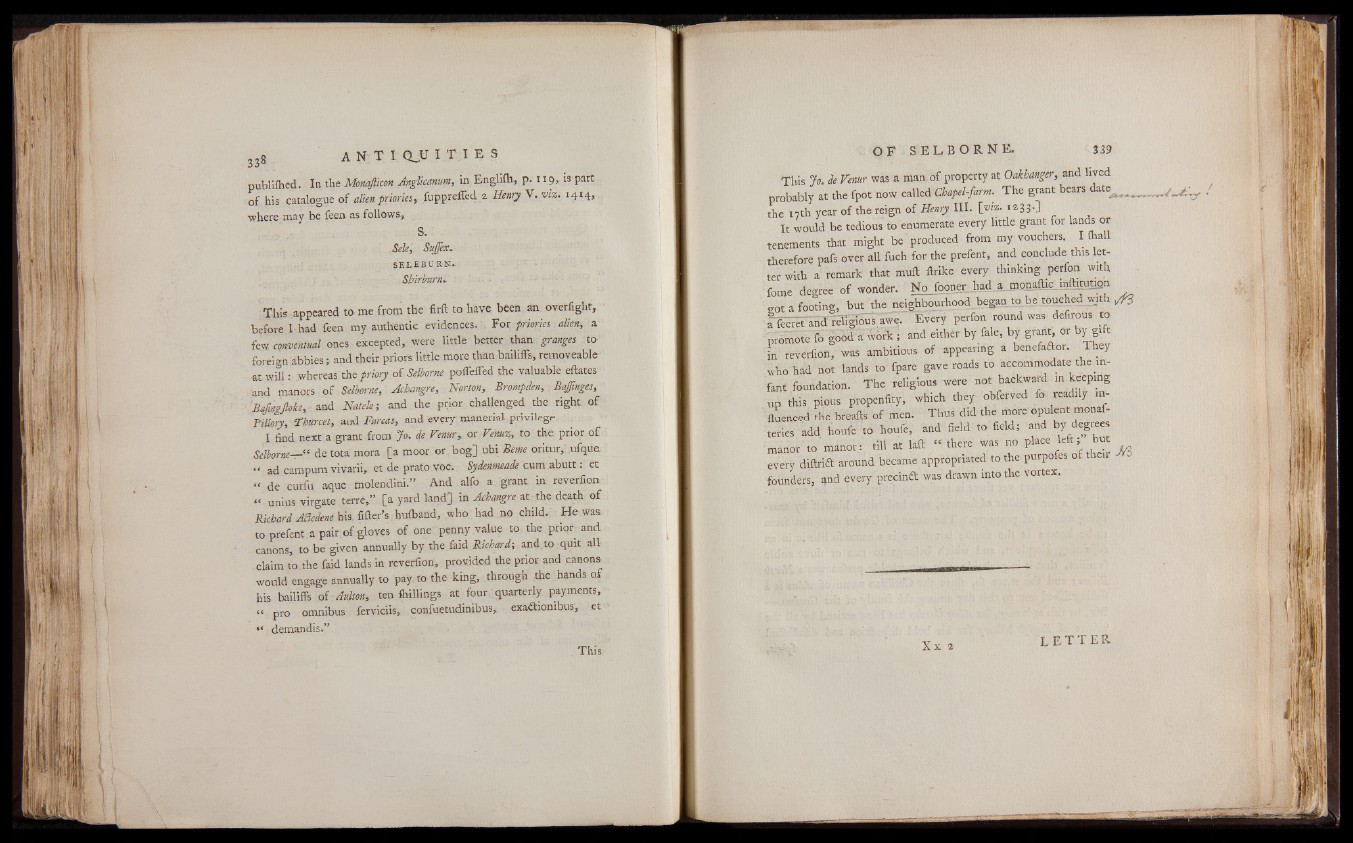
publifhed. In the Monafficon Anglicanum, in Englilh, p. 119, is part
of his catalogue of alien priories, fuppreffed 2 Henry V. viz. 14x4,
where may be feen as follows,
S.
Sele, Suffix.
SELEBURN.
Shirburn.
This appeared to me from the firft to have, been an overfiglit,
before I had feen my authentic evidences. For priories alien, a
few conventual ones excepted, were little better than granges to
foreign dbbies j and their priors little more than bailiffs, removeable
at will: whereas the priory of Selborne poffeffed the valuable eftates
and manors of Selborne, . Achangre, Norton, Brompden, Bajjinges,
Bafmgjloke,; and Natele; and the prior challenged the right o f
Pillory, Phurcet, and Furcas, and every manerial privilege.
I find next a grant from Jo. de Venur, or Vemtz, to the prior o f
Selborne— “ de tota mora [a moor or bog] ubi Berne oritur,, ufque.
“ ad campum vivarii, et de prato voc. Sydenmeade cum abutt: et
“ de curfu aque molendini.” And alfo a grant in reverfion
« unius virgate terre,” . [a yard land] in Achangre at the death of
Bichard ABedene his After’s . hufband, .who had no child. He was
to prefent .a pair of gloves of one " penny value to the priqr and
canons, to be given annually by the laid Richard-, and. to quit all
claim to the faid lands in reverfion, provided the prior and canons
would engage annually to pay to the king, through the hands of
his bailiffs o i Aulton, ten killings at four quarterly payments,
« pro omnibus ferviciis, confuetudinibus, exa&ionibus, et
“ demandis.”
This
This Jo. de Venur was a man of property at Oakhanger, and lived
probably at the fpot now called Chapel-farm. The grant bears
the 17th year of the reign of Henry III. [viz. x233’]
It would be tedious to enumerate every little grant for lands or
tenements that might be produced from my vouchers. I mall
therefore pafs over all fuch for the prefent, and conclude this letter
with a remark that muft ftrike every thinking perfon with
fome degree of wonder.
got a footing, but the neighbourhood began to be touched with
a fecret^ d reilgious awe. Every perfon round was defirous to
prdmSteTo good a wbik • and either by fale, by grant, or by gift
in reverfion, was ambitious of appearing a benefa&or. They
who had not lands to fpare gave roads to accommodate the infant
foundation. The religious were not backward in keeping
up this pious propenfity, which they obferved fo readily influenced
the breafts of men. Thus did the more' opulent monaf-
teries add houfe to houfe, and field to field; and by degrees
manor to manor: till at laft “ there was no place left; but
every diftrift around became appropriated to the purpofes of their
founders, and every precinft was drawn into the vortex.
X x 2 L E T T E R